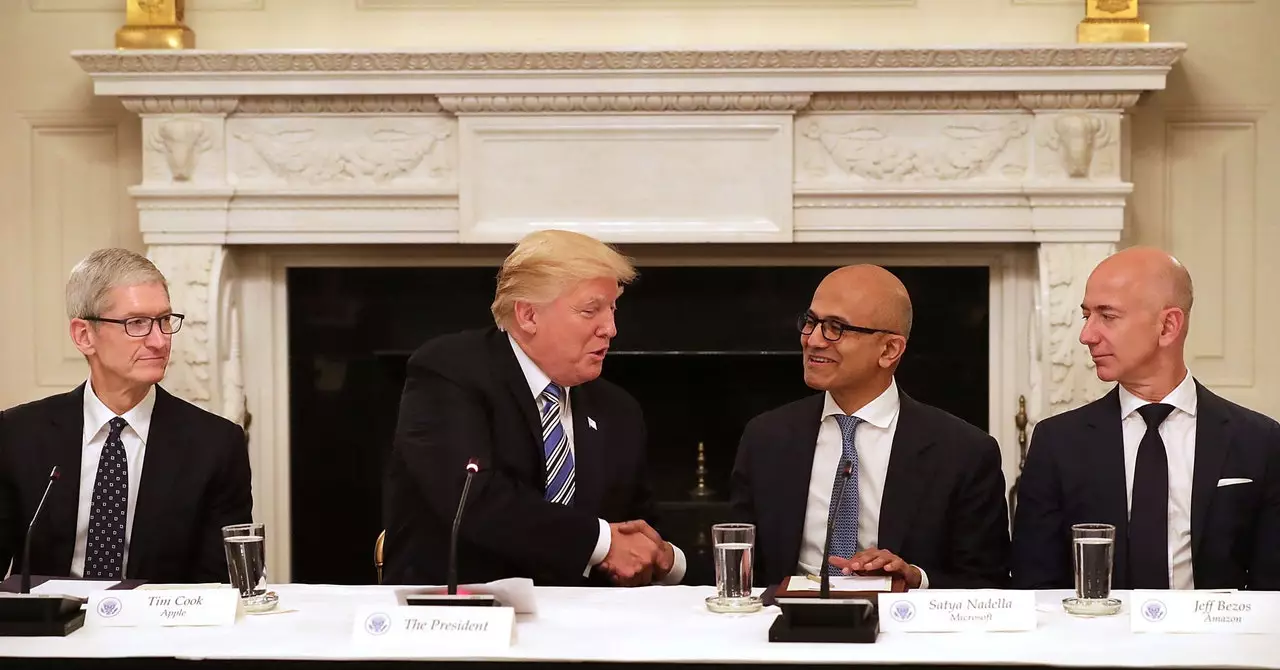In the nascent stage of the upcoming Trump presidential campaign, the former president’s remarks and promises have ignited a firestorm of reactions, particularly in the areas of cryptocurrency and big tech regulation. As America stands on the precipice of another election cycle, the implications of Trump’s past policies, combined with his recent commitments, are becoming clear. Central to this discussion is the potential overhaul of regulatory figures and the implications for both tech innovation and corporate accountability.
Trump’s assertion that he intends to dismiss Gary Gensler, the current chairman of the Securities and Exchange Commission (SEC), has resonated strongly with his supporters, particularly those in the cryptocurrency sphere. Under the Biden administration, Gensler has spearheaded numerous lawsuits aimed at regulating crypto businesses, a move that many insiders argue stifles innovation and risks pushing the industry overseas. By aiming to fire Gensler, Trump signals not only his disdain for current regulatory practices but also a pivot towards a more crypto-friendly environment.
This promise, however, speaks to a broader narrative: the tension between innovation and regulation. Cryptocurrency enthusiasts have long criticized heavy regulations as an unfair barrier to entry for a market that thrives on libertarian ideals of decentralization and minimal oversight. Trump’s engagement could potentially open doors for a more lenient regulatory framework that leaves ample room for these burgeoning technologies to flourish.
The Ulbricht Controversy: A Symbol of Overreach?
Compounding his agenda, Trump’s vow to commute the sentence of Ross Ulbricht, the founder of the Silk Road, highlights another angle of his stance towards regulatory structures. The Silk Road was notorious for facilitating the exchange of illicit goods and services, predominantly funded through Bitcoin. Advocates for Ulbricht argue that his life sentence was overly harsh considering the nuances of online marketplaces and the evolving nature of digital trade.
The decision to invest political capital in Ulbricht’s case is indicative of Trump’s willingness to challenge prevailing narratives around criminal justice and digital currency. For many within the cryptocurrency community, Ulbricht represents not merely a man serving time but a testament to the broader debate surrounding government’s role in personal freedom and digital autonomy. The former president’s promise could galvanize a significant movement championing both Ulbricht’s release and the broader acceptance of digital currencies.
Another contentious figure in the realm of regulation is Lina Khan, the youngest chairperson of the Federal Trade Commission (FTC). Khan has been in the crosshairs of criticism from figures across the political spectrum for her aggressive antitrust stance targeting major tech companies like Google and Amazon. For Trump and his allies, Khan symbolizes a regulatory climate that they perceive as hostile to innovation and entrepreneurial spirit.
Comments from notable individuals such as LinkedIn co-founder Reid Hoffman and Elon Musk reflect a growing sentiment within certain business circles: Khan’s tenure has become untenable for their futures. An early implication of a second Trump presidency could entail the outright removal of Khan, accompanied by a shift towards more favorable policies for tech giants, drawing concern from advocates of robust antitrust enforcement.
Vice President-elect J.D. Vance’s nuanced position adds another layer of complexity to the matter. While he acknowledges Khan’s efforts as a necessary stance against perceived censorship from large tech platforms, he hints at a desire for an antitrust solution that balances regulation without suppressing innovation. This duality in approach signals a potential evolution in how the Republican administration might engage with big tech—where regulation is employed not only as a measure for accountability but a tool for political leverage.
The Road Ahead: Antitrust and Potential Collaborations
Despite the electoral fervor and the looming promises of change, it remains uncertain how the Trump administration would navigate the intricate landscape of antitrust. Analysts suggest that while a renewed emphasis on rolling back existing cases against tech companies may occur, underlying tensions concerning speech regulation and content moderation will likely remain contentious battlegrounds.
Trump’s approach, particularly if he leverages antitrust as a negotiation tool, signals a departure from conventional prosecution-style tactics towards a more transactional relationship between tech companies and regulators. This shift not only outlines a new strategy for addressing issues of fairness in the digital landscape but could also set the stage for potential collaborations under the guise of deregulation.
As the political climate continues to shift, the tech industry is poised for significant turbulence. The outcomes of Trump’s promises and the subsequent actions they provoke will inevitably shape not only the regulatory environment but also the future of innovation in America.


Leave a Reply